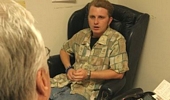|
|
 Acne (1,500) Acne (1,500)
 Addictions (1,500) Addictions (1,500)
 Advice (1,500) Advice (1,500)
 Allergies (1,092) Allergies (1,092)
 Alternative Medicine (1,500) Alternative Medicine (1,500)
 Anti Aging (1,500) Anti Aging (1,500)
 Breakup (1,500) Breakup (1,500)
 Cancer (1,499) Cancer (1,499)
 Dental Care (1,500) Dental Care (1,500)
 Disabilities (1,500) Disabilities (1,500)
 Divorce (1,500) Divorce (1,500)
 Elderly Care (1,498) Elderly Care (1,498)
 Goal Setting (1,500) Goal Setting (1,500)
 Hair Loss (1,500) Hair Loss (1,500)
 Health and Safety (1,497) Health and Safety (1,497)
 Hearing (1,500) Hearing (1,500)
 Law of Attraction (1,499) Law of Attraction (1,499)
 Marriage (1,500) Marriage (1,500)
 Medicine (1,497) Medicine (1,497)
 Meditation (1,499) Meditation (1,499)
 Men's Health (1,500) Men's Health (1,500)
 Mental Health (1,500) Mental Health (1,500)
 Motivational (1,500) Motivational (1,500)
 Nutrition (1,495) Nutrition (1,495)
 Personal Injury (1,499) Personal Injury (1,499)
 Plastic Surgeries (1,500) Plastic Surgeries (1,500)
 Pregnancy (1,496) Pregnancy (1,496)
 Psychology (1,500) Psychology (1,500)
 Public Speaking (1,500) Public Speaking (1,500)
 Quit Smoking (1,500) Quit Smoking (1,500)
 Religion (1,499) Religion (1,499)
 Self Help (1,500) Self Help (1,500)
 Skin Care (1,500) Skin Care (1,500)
 Sleep (1,500) Sleep (1,500)
 Stress Management (1,500) Stress Management (1,500)
 Teenagers (1,492) Teenagers (1,492)
 Time Management (1,500) Time Management (1,500)
 Weddings (1,500) Weddings (1,500)
 Wellness (1,500) Wellness (1,500)
 Women's Health (1,500) Women's Health (1,500)
 Women's Issues (1,500) Women's Issues (1,500)
|
In my outpatient counseling job I see many teenagers turning to drugs and cutting themselves though only a portion go to adolescent drug rehab programs. As I delve into issues with them at the outpatient mental health clinic I work at, the main issues seem to revolve around friendships, boyfriends, family tensions and academic pressures. It is easy to discount a teen's worries and tell them worrying about a boyfriend at age fourteen isn't important. But, it is to a teen and rejection can be very painful. As adults we are often good at building defenses and a wall, but many teens are vulnerable. Plus, they don't have many of the outlets that adults have when things are stressful. For instance, as an adult, we can jump in the car and take a ride, drive to the mall to shop, plan a girls night out to forget trouble etc. A teenager often can't drive and has limited escape options for mental health. There isn't the luxury of running to a pilates class or getting a massage to try to regain mental peace. Of course, teens do have ways to diffuse stress such as the internet, cell phone calls, texting and listening to music. Still, if the issues revolve around their friends or dates, many of the same people are interacting and it may just re-inforce the painfulness of the original interaction. If there is additional strain with the family then there just may not be any way it seems to feel good. Adolescent drug rehab can help if the problem gets out of control. If it is occassional use, it's important to help the person find other ways to feel good which can include exercise that releases endorphins, creative activities like drawing and music or relaxation techniques through tai-chi, meditation and yoga. If there are family pressures that are the source of the drug problem, brainstorm about an aunt or uncle that the teen can visit for a weekend to just get a new environment. This can help to get a break from each other. It often is hard for teens to open up and one way that is useful for parents is to talk about oneself honestly and an issue that one had and overcame. Don't be preachy or give a lecture but talk about your own vulnerability, how you felt stuck and the difficult points. This is often why al-anon, aa and other twelve step groups work well because people are able to hear others experiences and understand their process, insights and trials.
|
|
|



